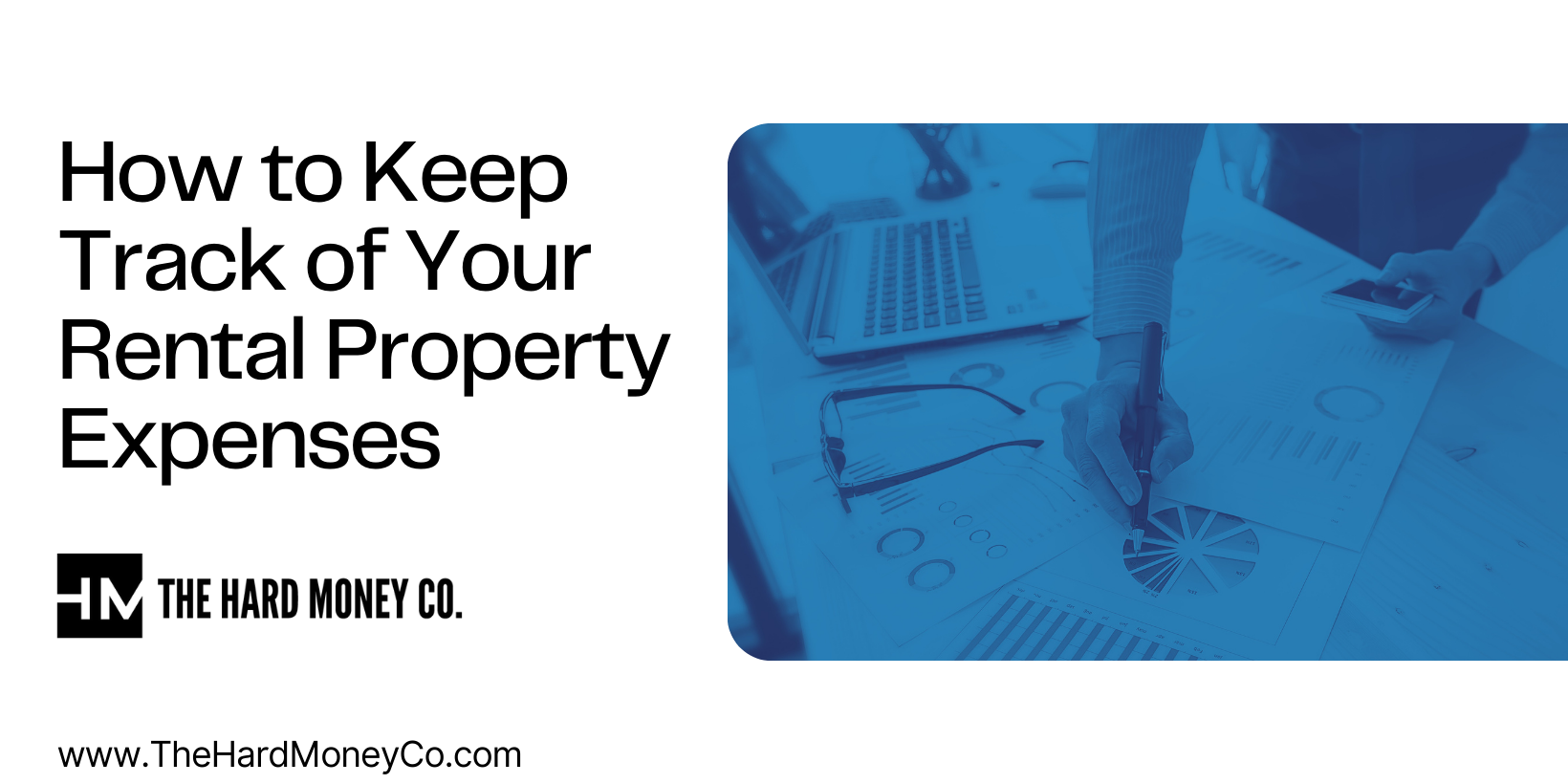It is imperative to keep track of rental expenses when investing in real estate. Most rental property investors are diligent about keeping an eye on monthly rental income, however, many of them neglect to keep track of the expenses associated with their properties.
Maintaining proper records of your lease expenditures is essential in order to optimize your tax deduction for rental properties. You may end up paying for your mistake by spending less than you should.
“Do you know that according to the legal information site Nolo.com, if a $100 tax deduction goes unclaimed, a typical middle-class landlord would end up paying $25 more in the form of additional federal tax?
However, maintaining a detailed record of tax deductions can be a time-consuming process, and filling out the appropriate tax forms in order to get the most out of them is not an easy task. The situation is even worse without a rental or expense tracking system, which will enable you to organize all critical documents and maintain a complete record of earnings and expense reports on the fly.
We are happy to report that tracking your investment property expenses will be a breeze if you make use of the very best management tool specifically designed for it. In this article, we'll look at ways to track your investment property expenses so you pay as little tax as possible so you're able to save more money for your long-term goals.
4 Reasons to Keep Track of Your Investment Property Expenses
When it comes to getting the most out of your investment property, be sure to disclose your financial information to the fullest. Property investors should maintain good records to help them with their investments.
- Maintaining accurate records ensures that you don’t overlook any tax deductions and don’t end up paying too much in taxes.
- Having all your financial and rental records at hand gives you the ability to accurately monitor the profitability of your investment property and reduces the chances of mistakes when filing your tax returns.
- You will have access to more accurate and up-to-date financial data, enabling you to make financial plans and accomplish your financial objectives.
- If an audit is conducted by a company like “IRS Audits”, you will be expected to prove that your rent claims are valid. If you are unable to produce proof of your claim, it may be deemed unreliable, and if so, you may be required to pay further taxes and a penalty.
Rental Property Records - What to Keep And For How Long?
Numerous reasons exist for property investors to maintain detailed records of the expenses related to their investment properties. But the real question is “what record should be kept and for how long”
For safety's sake, I would say “Everything”.
However, there are 2 main types of records that the real estate owner must-have.
- Detailed income and expense records - related to individual rentals, typically disclosed in a profit and loss statement commonly referred to as “P&L”.
- Backup or supporting documents - statements of bank accounts and credit cards, as well as receipts of other expenses to support the figures that appear on the profit and loss statement to justify the figures.
You still must keep some documents aside from receipts and income statements for the long term. A few examples of these documents are:
- Tenant leases, both current and past.
- Keep a log of every communication you have with your rental clients.
- Taxes from last year
- Listed properties
- Insurance policies
- Documents related to the law, such as penalties, inspection records, and case records
Sounds simple enough, right? One can easily get bogged down in such meticulous record keeping. Particularly if you consider the various costs involved regardless of whether this is your first rental property or your only rental property.
The best way to keep track of rental property expenses
The paperwork is numerous and difficult to keep up with to properly track costs associated with rental properties. It is especially challenging for first-time investors. Also, for owners of just one or two homes, perhaps more than one, you might find that a simple spreadsheet will suffice.
There are lots of advantages associated with using online accounting software when it comes to tracking real estate expenditures, where some of the most effective software for managing properties comes free of charge.
The 3 most used property expense tracking methods are as follows:
- Spreadsheets
- Tools for managing property expenses
- Software for tracking business expenses
Although they each have their own advantages, whereas property expense tools offer more robust functionality than spreadsheets, business tracking software, on the other hand, offers more advanced features. I will discuss each in turn to identify their advantages and disadvantages.
Spreadsheets
Keeping track of expenses related to rental properties using spreadsheets is quite easy, as they often come with templates to get you started. Most new investors start by creating a spreadsheet, which can be created with Google Sheets, Microsoft Excel, Numbers, or OpenOffice. Additionally, it can be customized as needed.
The process of manually adding expenses on spreadsheets initially seems straightforward, however, most companies believe administrative work takes up an inordinate amount of time.
Read on to find out about alternative options.
Spreadsheet Alternative to Track Property Expenses
Zillow Expense Worksheet - First and foremost, it is available entirely free of charge. Keep your books in order using this handy spreadsheet that is customizable based on your business's needs.
This spreadsheet is in Excel style and is intended for property owners who own 1-5 rental units.
As a bonus, the program integrates with “Zillow Rental Manager” in order to collect rent payments online. For this program to work, it is necessary to have the latest version of “Microsoft Office” on the digital device being used.
Property Expense Tools
Tracking a property’s revenue and expenditures can be done with several rental trackers, but by far the most popular is “Landlord Studio” since it lets users generate reports, monitor potential tenants, rent collection, notifications, handle tenants, and leads centrally, as well as keep track of expenses.
Alternative Software
Accountancy software products such as “TurboTax, Quicken, and Tiller Money” provide essential features to landlords who own a few properties.
Quicken
Quicken is equipped with built-in modules that you can customize and utilize as an electronic checkbook and perform payments online by registering.
Tiller Money
With Tiller Money, you can automatically sync transactions and financial information to Google Sheets or Excel, offering a more sophisticated alternative to the Zillow worksheet.
Business Expense Tracking Software
Among the most popular software used to track business, expenses are “QuickBooks”. Offering a wide variety of landlord-friendly features, QuickBooks goes beyond simple payroll and bookkeeping software that can be used with a cloud-based system of expense tracking. Major features include the following:
- Expenses are automatically classified
- The flexibility of working from anywhere
- Receipt scanning made simple and fast
- Capacity to handle multiple users
One of the most difficult aspects of recording financial data is entering receipts. Receipts can often be misplaced or forgotten by employees, causing chaos in your finances and hampering your tax deductions.
However, by using QuickBooks, your employees can simply take a picture and the receipt will be saved and categorized automatically.
Payroll plays a crucial role in expense tracking as well. Make sure the platform provides automated payroll processing, accurate calculations, tax reporting, and direct deposit on the same day. With payroll automation, wages can be calculated more quickly, and human errors can be minimized.
Plus, you can always adjust and reconcile your finances to ensure better recordkeeping and more accurate timekeeping.
Property Management Software
The property management software allows property investors and property managers to manage leases, tenants, maintain properties, collect rent, as well as manage finances, in order to minimize expenses and make operations more efficient.
Since such a large amount of money is generated from the rental of residential properties, it is not surprising that a number of software companies have sprung up to enable property managers, property owners, and investors to manage their properties, not just to communicate with tenants, but also in order to prepare for tax season.
Here’s the list of the top 5 best rental property management software. Some of them are free and some are not because of their advanced features.
- Free alternative - TurboTenant and Stessa
- Top cloud application - Yardi Breeze
- The best choice for a few properties - SimplifyEm
- Best for single-family homes - PropertyWare
- Commercial properties' best choice - MRI Software
- Feature-rich app - AppFolio
- Best in class - Buildium
In addition to the two free options available, property owners are likely to find that “Stessa” is an excellent tool for managing properties and finances, as well as keeping records regarding income and expenses. The app is 100% free, and it's also available for iOS and Android.
"Stessa" enables both novices and experienced investors to have a better understanding of investment possibilities. The best part is that you can quickly set up property tracking to automate income and expenses along with customized tax and accounting reports for maximum profit and tax efficiency.
FAQs
Question 1: What is an investment property?
Answer: An investment property is a piece of property, either a house or land, held for the purpose of generating income, appreciating in value, or maybe both. It is an uninhabited property, whose goods and services are not consumed.
Question 2: Does land qualify as an investment property?
Answer: Investment property is purchased with the purpose of selling it for a profit. Collectibles, stocks, and bonds fall under this category.
Question 3: Does investment property qualify as a tangible asset?
Answer: Investment properties refer to assets used to generate rental income or capital growth. There may be exceptions if it is impossible to determine a fair value accurately.


